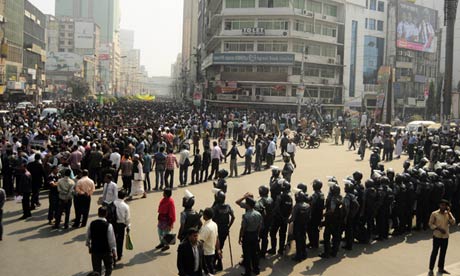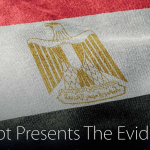

On 5 February 2013, the International Crimes Tribunal (“ICT”) convicted Abdul Quader Molla of five counts and sentenced him to life imprisonment. He was tried on six counts, comprising murder and rape as a crimes against humanity, aiding and abetting the commission of such crimes and complicity in the committing of the offences. He denied all charges.
Abdul Quader Molla was born on 14 August 1948 and will be turning 65 this year. Prior to his arrest he was Assistant Secretary General of Bangladesh Jamaat-e-Islami Bangladesh. It is noteworthy that all of the people indicted and tried for war crimes, crimes against humanity and genocide by the ICT are members of Jamaat-e-Islami (“Jamaat”) and the Bangladesh National Party (“BNP”), the two major opposition parties to Prime Minister Sheikh Hasina’s Awami League.
His sentence follows swiftly in the wake of the sentence of television preacher and former Jamaat party member Moulana Abul Kalam Azad, who was sentenced to death on 21 January 2013 following his trial and conviction in absentia of genocide against the Hindu community and various other criminal acts which were held to constitute “crimes against humanity” under Section 3(2) of the International Crimes Tribunal Act of 1973.
Speaking after the verdict, Attorney General Mahbubey Alam declared: “He deserved death sentence because of the gravity of the crimes. But the judge gave him life imprisonment.” He added that A. Q. Molla “had directly participated” in the killing of more than 350 people near Dhaka.
One of A. Q. Molla’s defence attorneys is reported to have said they would appeal the verdict as it was “politically motivated”. Further, in a statement released to the press, Chief Defence Counsel, Mr Abdur Razzaq, wrote “In our view, there is not an iota of evidence on record to warrant a conviction of Abdul Quader Mollah, let alone a life imprisonment. The Prosecution has completely failed to establish the 6 charges against Abdul Quader Mollah. […] We will file an appeal against the judgment of the Tribunal. We believe that the judgment of the Tribunal will be completely reversed by the Supreme Court.”
Since the establishment of the ICT in 2010, a number of persons and organisations have criticised the Government of Bangladesh and the ICT for failing to protect fundamental human rights and to uphold international standards of fair trial and have called for the legal framework of the ICT to be amended in accordance with international standards. These have included among others the US Ambassador-at-Large for War Crimes, Stepen Rapp, Lord Avebury, Lord Carlile, the UN-OHCHR Working Group on Arbitrary Detention, Human Rights Watch, Amnesty International, the International Bar Association, the UK Bar Human Rights Committee and the International Center for Transitional Justice and Amnesty International
The outcome of the trial has shaken the extremely fragile political situation in Bangladesh and inflamed ongoing protests in the capital and other major cities. Deutsche Welle reported that Jamaat ordered a general strike that shut down schools and shops and halted traffic in Dhaka. It warned it would resist “at any cost a government blueprint” to execute its leaders. According to the Bangladesh news agency, ATN News, supporters of Jamaat have exploded homemade bombs and clashed with police in parts of the capital, leaving several people injured.
A detailed summary of the judgment will follow shortly.



